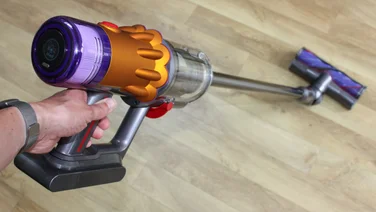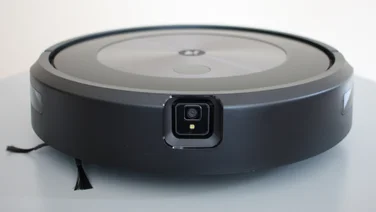To help us provide you with free impartial advice, we may earn a commission if you buy through links on our site. Learn more

As the days warm up and flowers start to blossom, the insects arrive too. Many of these, such as butterflies and bees, are a welcome addition but some bugs are less wanted, particularly inside your home.
The trouble with ants is that if you see one in your home, you can be sure it’s brought all its friends. Ants travel in groups and live in colonies, meaning that if they get into your house, you could soon be dealing with an ant invasion.
Fortunately, there are both ways to prevent an ant infestation and ways to get rid of them if they’re already inside. We’ve spoken to experts to find the most effective ways of dealing with an ant infestation, so you can reclaim your home as quickly (and painlessly) as possible.
How to get rid of ants quickly and efficiently
Prevention is better than a cure when it comes to ants. But how do you deter ants from invading your home in the first place? Here are some tried and tested methods.
Keep your garden tidy
“While you can never completely prevent pests such as ants from making their home in your back garden, keeping it tidy and well maintained is a surefire way of reducing the risk of an infestation,” says Daniel Baldwin, Board Certified Entomologist at Hawx Pest Control. “Removing dead leaves and decaying organic matter from plants on a regular basis can help to deter ants. Rubbish can also be a magnet for ants and other pests as it’s an easy source of food, therefore making sure that any waste is disposed of properly and securely is important to keep them away.”
Address moisture issues
“Ants are drawn to damp environments,” explains Sophie Thorogood, technical training manager at Pest-Stop. Reduce moisture levels in your home by fixing leaky pipes, faucets and appliances. It’s also important to ensure proper ventilation in kitchens, bathrooms and basements.”
Bathrooms and kitchens can be problem areas for damp so it’s important to carry out regular maintenance to check for any problems. And, if you haven’t got them already, extractor fans in both the kitchen and bathroom will make a big difference to moisture levels. Investing in a good dehumidifier is also another way to actively remove moisture and decrease damp levels.
Keep your home clean
“Ants are attracted to food and water sources like any other animals,” explains Daniel Baldwin. “Clean up crumbs and spills immediately, in particular on kitchen floors and worktops. Sweep and mop floors regularly to get rid of anything that could potentially attract ants and seal bind to deter pests and keep your home ant-free.”

“Food is also a magnet for ants, therefore it’s important to make sure food is never left uncovered on countertops. If you have any leftover food, make sure it is disposed of, or if you’re saving it for later, store it in an airtight container in the fridge or cupboard.”
Not sure where to start? Our cleaning tips guide will help keep your home tidy and free of pests.
Seal entry points
“Preventing ants from getting inside is the first step to keeping them at bay,” says Sophie Thorogood. “Inspect your home for cracks, gaps and crevices around walls, windows and doors. Seal any openings using silicone caulk or weather stripping to block their access. Applying a crawling insect spray along entry points can also help eliminate ants before they become a problem.”
If you’re working in areas that are prone to damp, make sure you use a silicone sealant instead to avoid forming a seal that isn’t breathable.
Methods to remove and deter ants in your home
Peppermint oil
“Studies have suggested that peppermint oil can work as an effective, natural repellent for ants around the home,” explains Daniel Baldwin. “Peppermint oil works by disrupting the ants’ communication and navigation systems, deterring them from scent. The strong scent of peppermint oil can mask the pheromones that ants use to mark trails and find food sources. This makes it difficult for ants to follow each other and locate food, acting as an irritant that ultimately causes them to leave the area where peppermint oil is present.”
Ant-repellent plants
“Some plants such as lavender, mint or rosemary have a smell that can discourage ants from approaching,” says Daniel Baldwin. “Consider incorporating these types of plants in your garden pots that will help deter ants from creating nests and causing infestations.”
Other natural deterrents
“If you prefer natural solutions, try these household remedies,” suggests Sophie Thorogood. “Sprinkle cinnamon, cayenne pepper or black pepper along ant trails and entry points to disrupt their scent trails. You can also spray vinegar or lemon juice solutions around windows, doorways and other access points.”

You can also mix a solution of baking soda and sugar and place it in shallow dishes near ant trials and entry points. The sugar will attract the ants while the baking soda reacts with their digestive system, ultimately killing them. Food-grade diatomaceous earth that’s safe for humans and pets will dehydrate ants, which will again ultimately lead to their deaths.
Ant baits and traps
“Using ant baits and traps can effectively reduce ant populations indoors,” says Sophie Thorogood. “Place them near trails and entry points, ensuring they are kept out of reach of children and pets.”
Remember that these have been designed to attract ants, so you may see more initially but once the bait is carried back to the next, numbers will start to drop.
We’ve tried and tested the best ant killers on the market – why not have a look?






